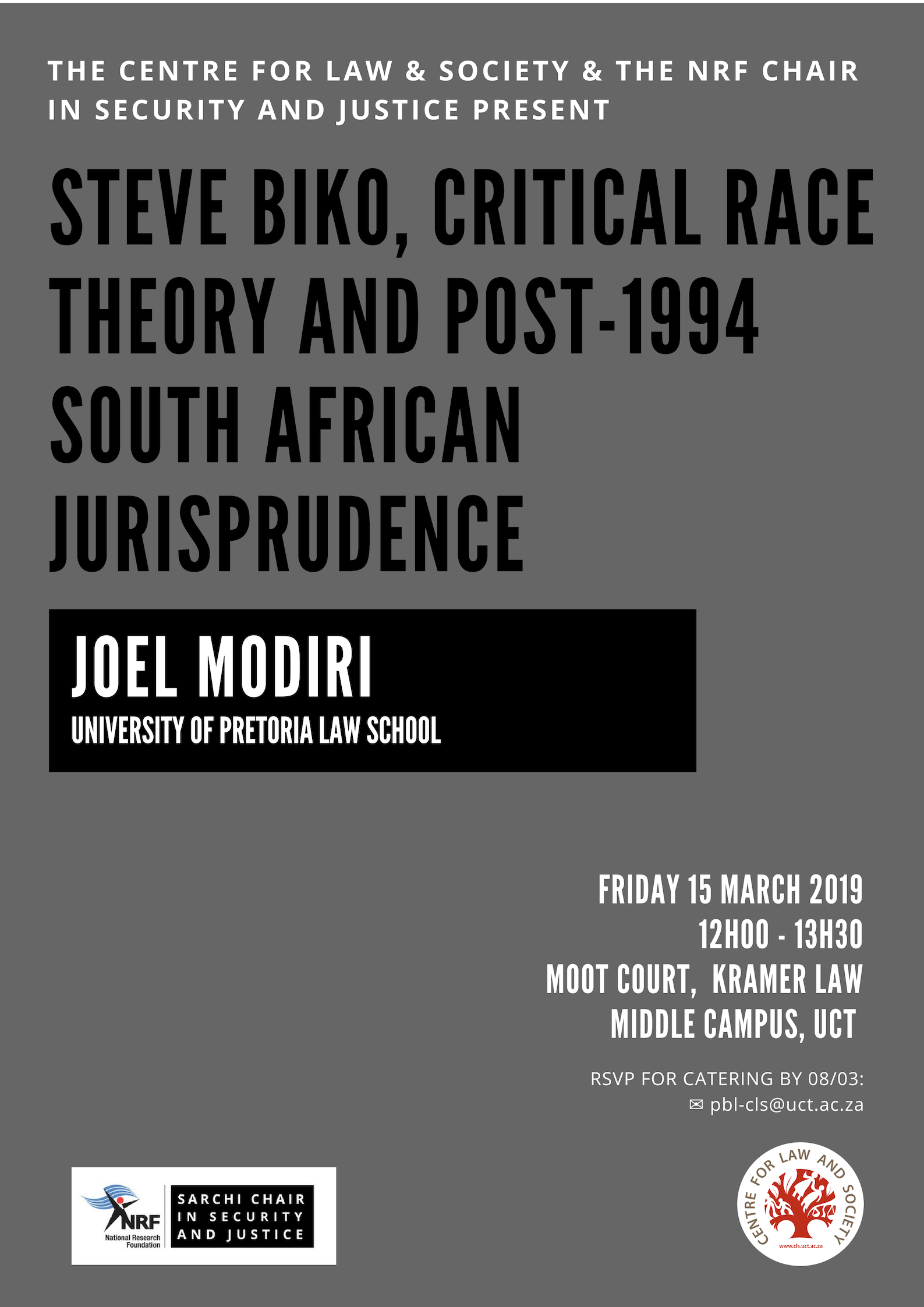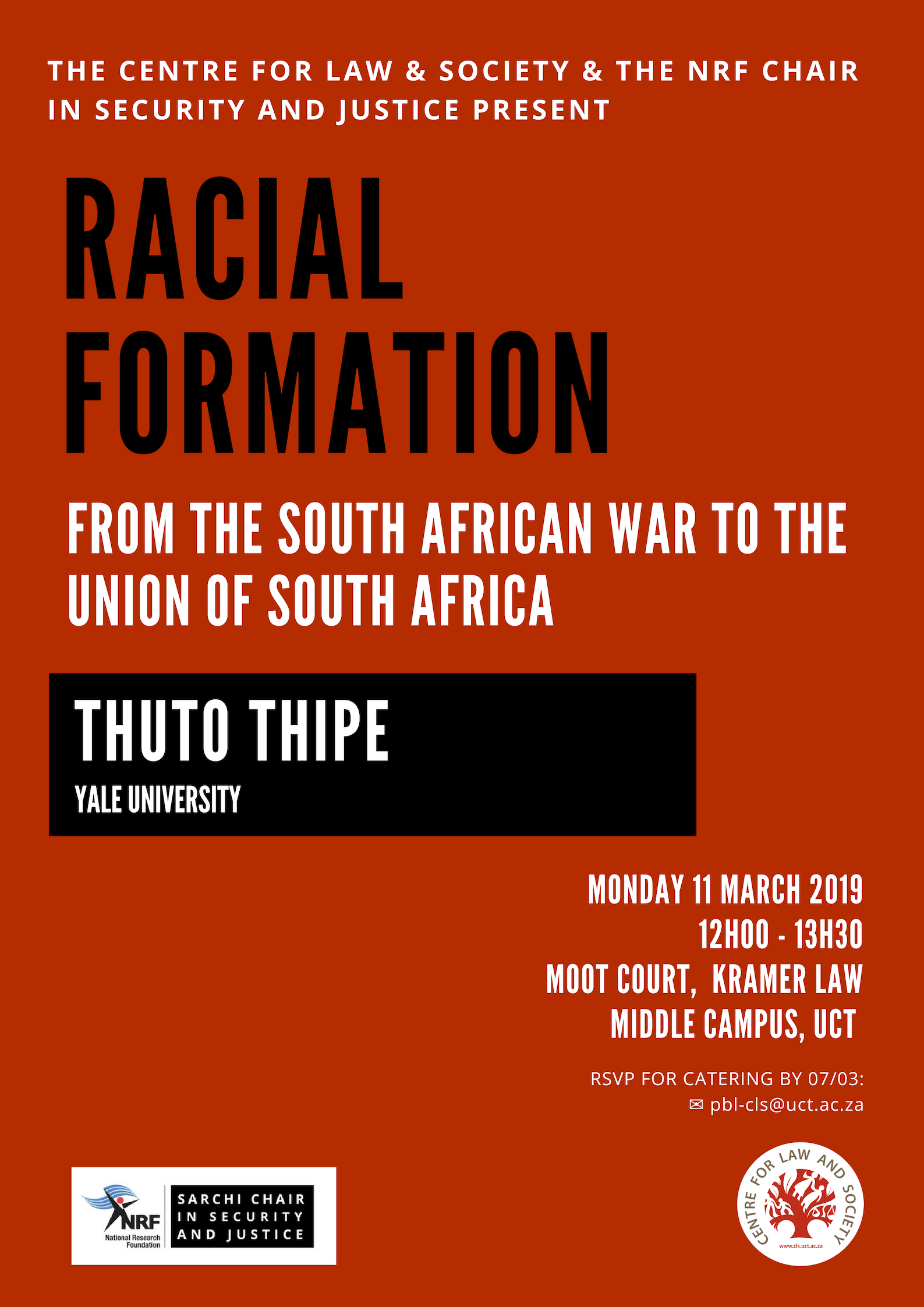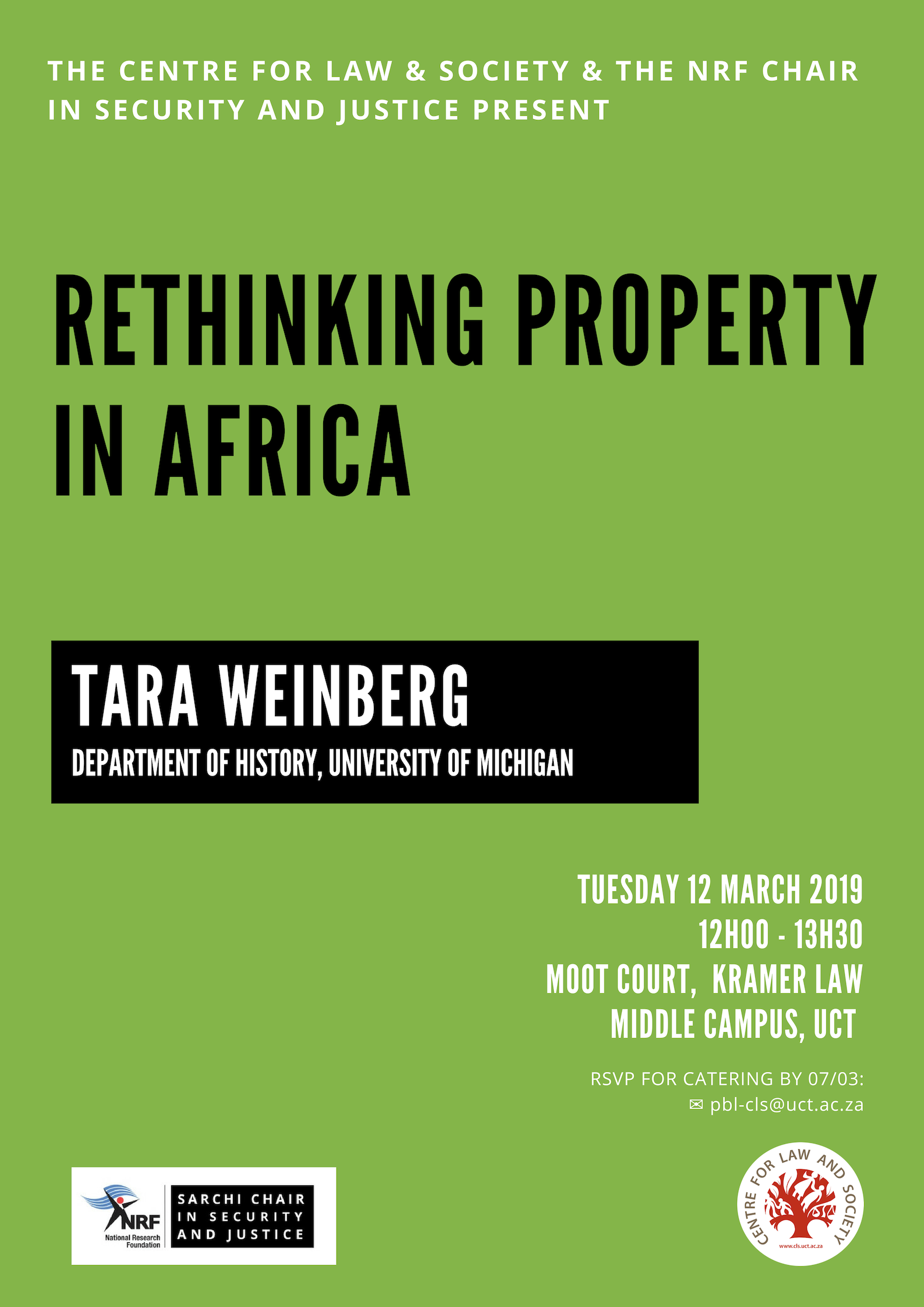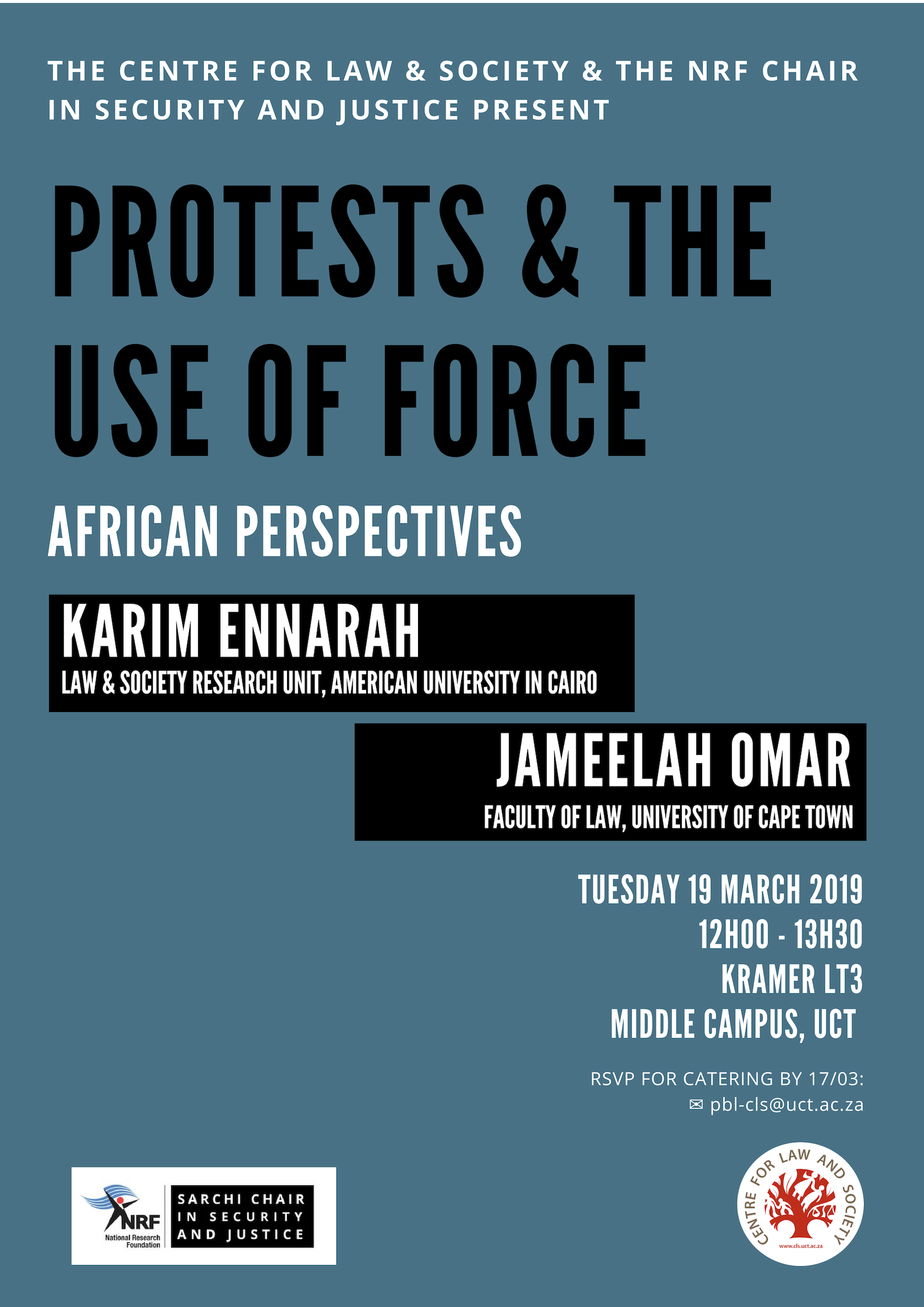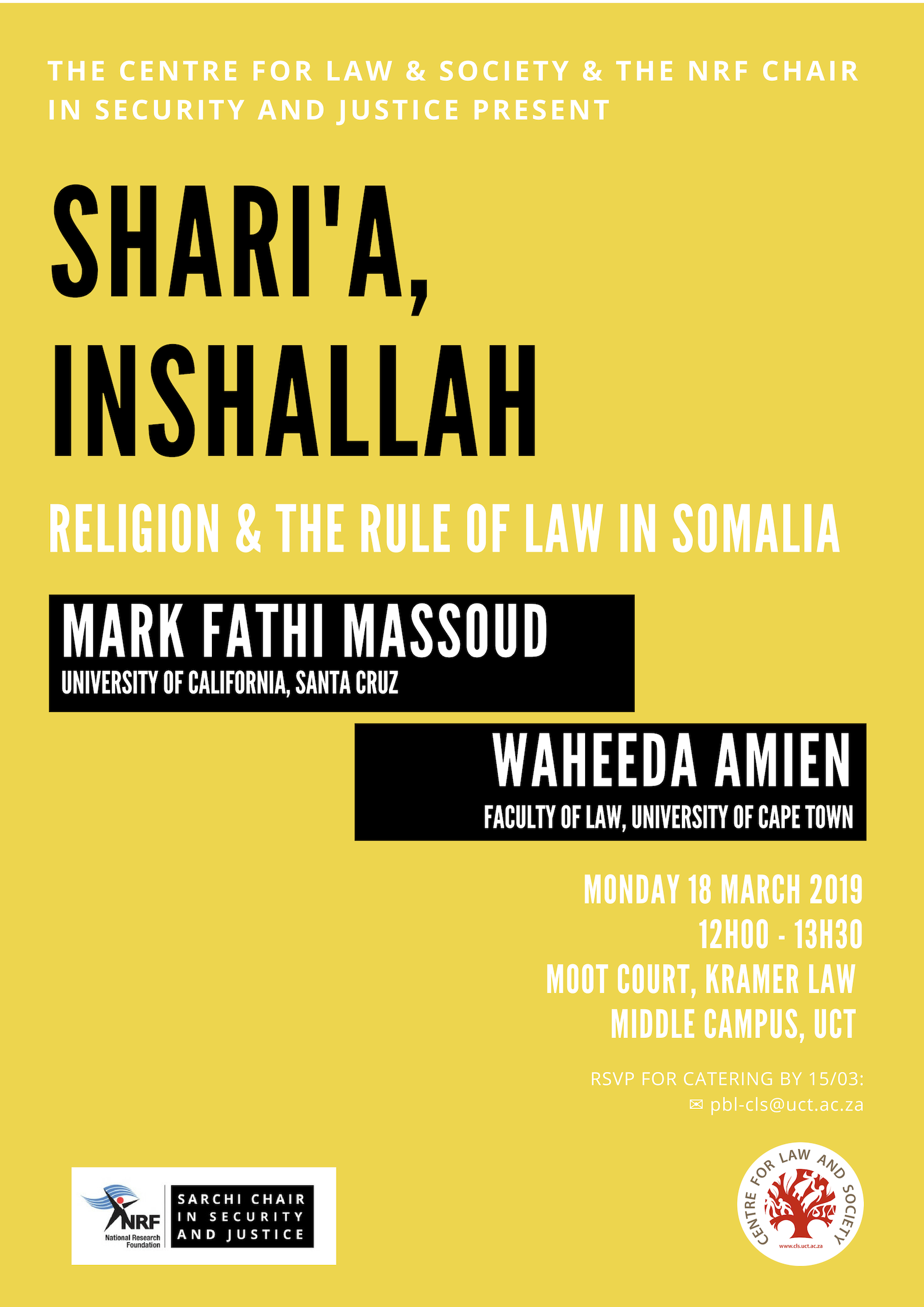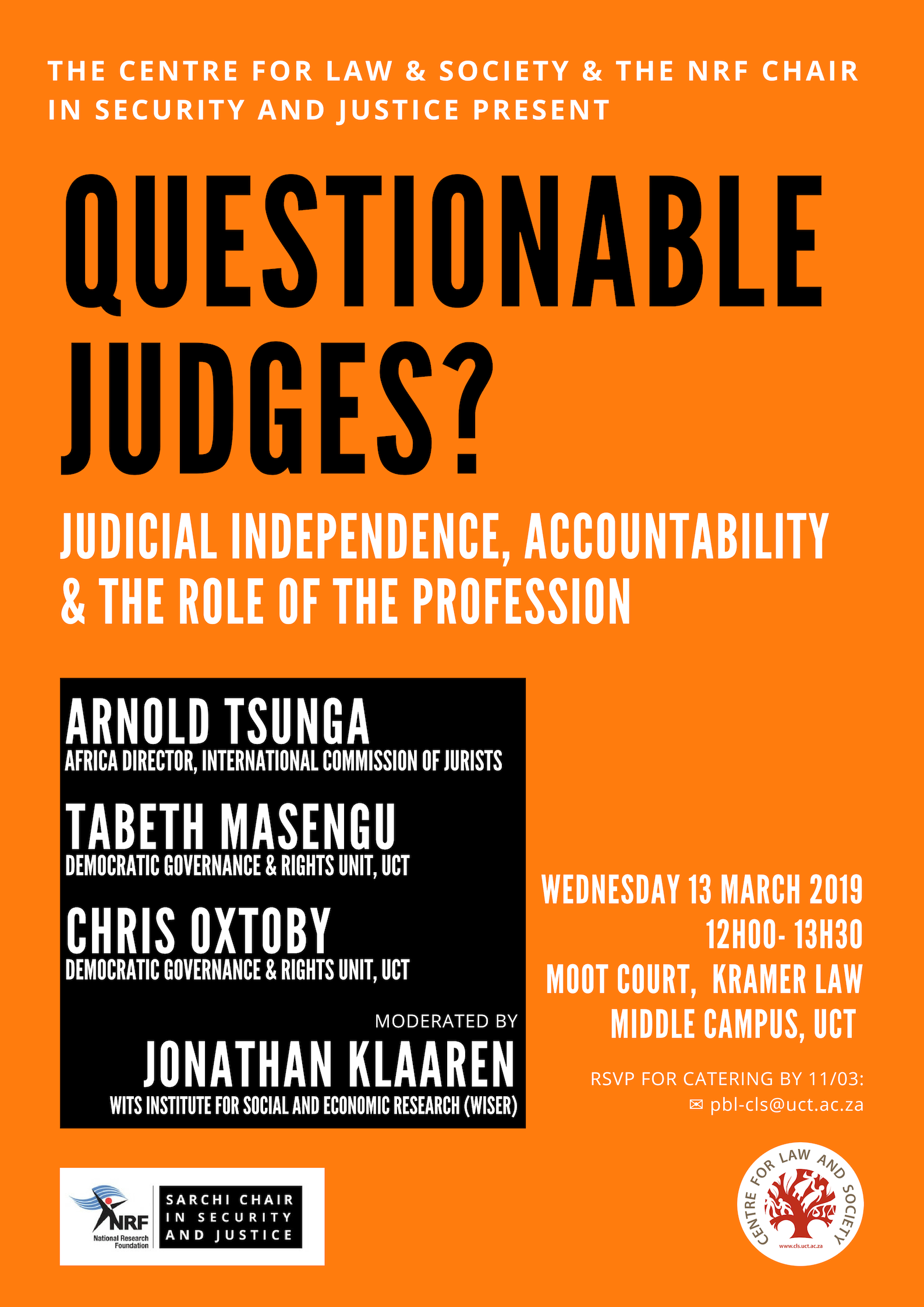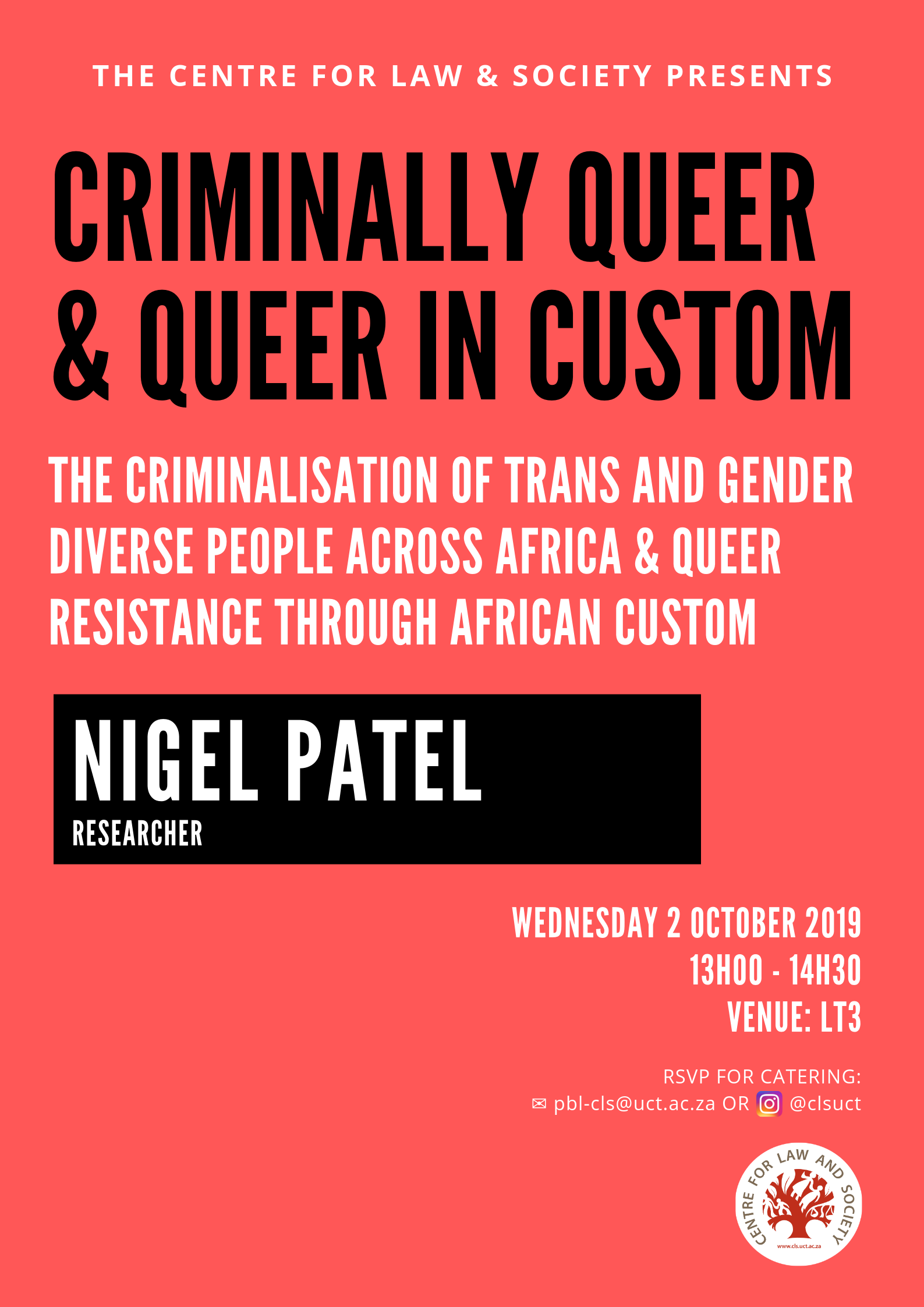This activity sees the Centre host a series of talks on critical issues in law and society and legal education which aim to bring students and faculty in contact with thought leaders in the field (both inside and outside of the field of law), to encourage dialogue on difficult topics, and to open conversations between socio-legal scholars and researchers, activists and thinkers who practice at the boundary between law and society.
To date CLS has hosted a diverse group of speakers engaging on a variety of critical topics including:
2019
2018
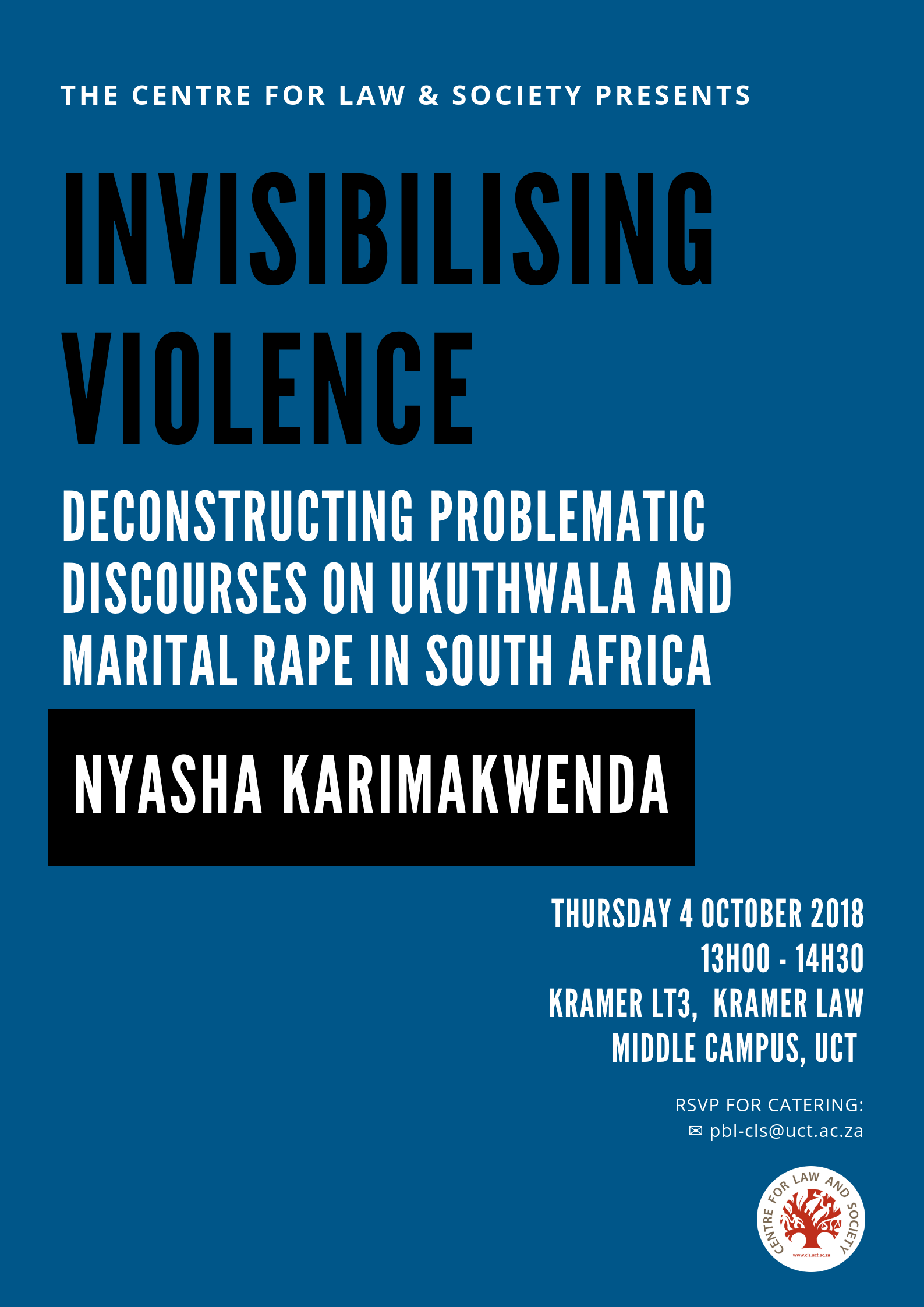
On 4th October 2018, Nyasha Karimakwenda discussed her doctoral research which examines how legal and policy discourses on gender violence in South Africa have invisibilised the scale and manifestations of marital rape. Integrating the subject of violent forms of ukuthwala (abduction for purposes of marriage), Nyasha spoke on how archaic and culturalist depictions of marriage relations distort women's experiences of marital rape, and silence their voices. Nyasha’s talk was entitled: Invisibilising Violence: Deconstructing Problematic Discourses on Ukuthwala and Marital Rape in South Africa.
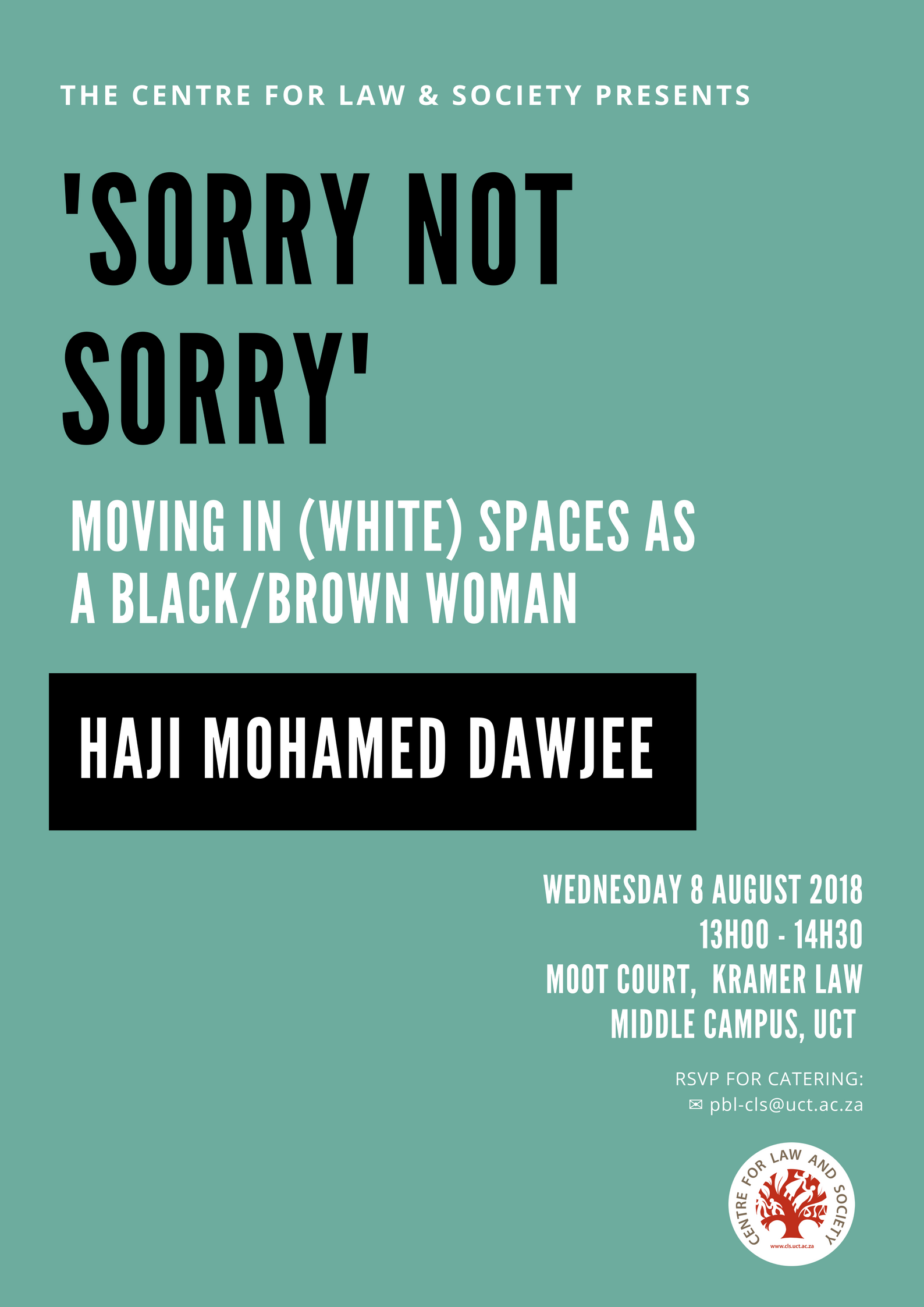
CLS hosted the first Thought Leader Encounter for the semester on Wednesday 8 August. Author Haji Mohamed Dawjee used her new book, Sorry Not Sorry: Experiences of a Brown Woman in a White South Africa, as a jumping board for a discussion on moving in white spaces as a brown/ black woman.
2017
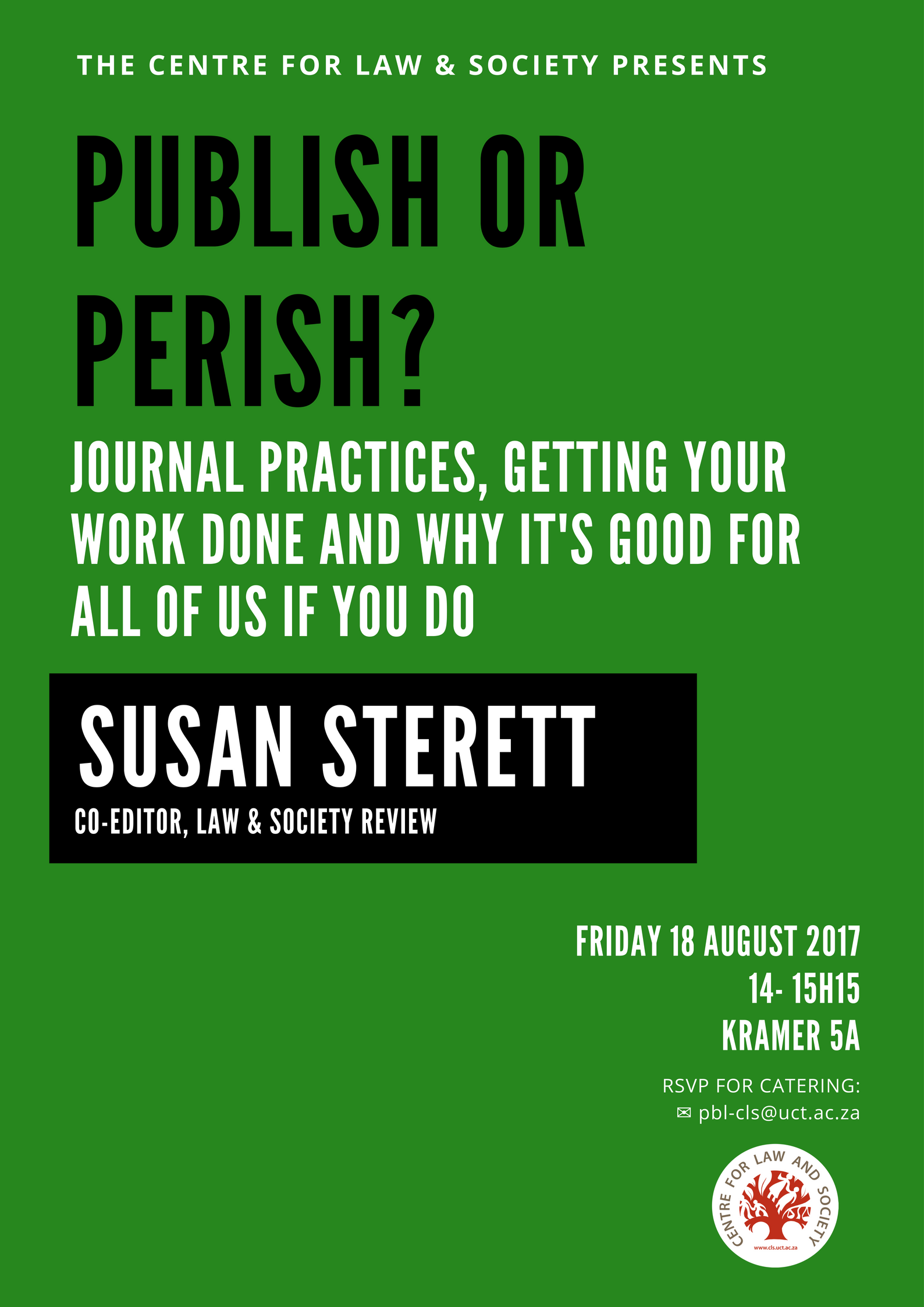
On Friday 18 August 2017, visiting Professor Susan Sterett led a discussion on journal practices and their importance to all of us.
Susan Sterett is the incoming director of the School of Public Policy at the University of Maryland, Baltimore County. She is the current co-editor of Law and Society Review, with Jeannine Bell (Indiana University) and Margot Young (University of British Columbia). She served as a program officer for the United States National Science Foundation in Law and Social Sciences for three years. She has written on how courts structure social welfare benefits, most recently concerning accessing benefits after disaster. In line with that project, Susan has recently convened a workshop with Anna-Maria Marshall (University of Illinois) at the International Institute for the Sociology of Law on legal mobilization and climate change.
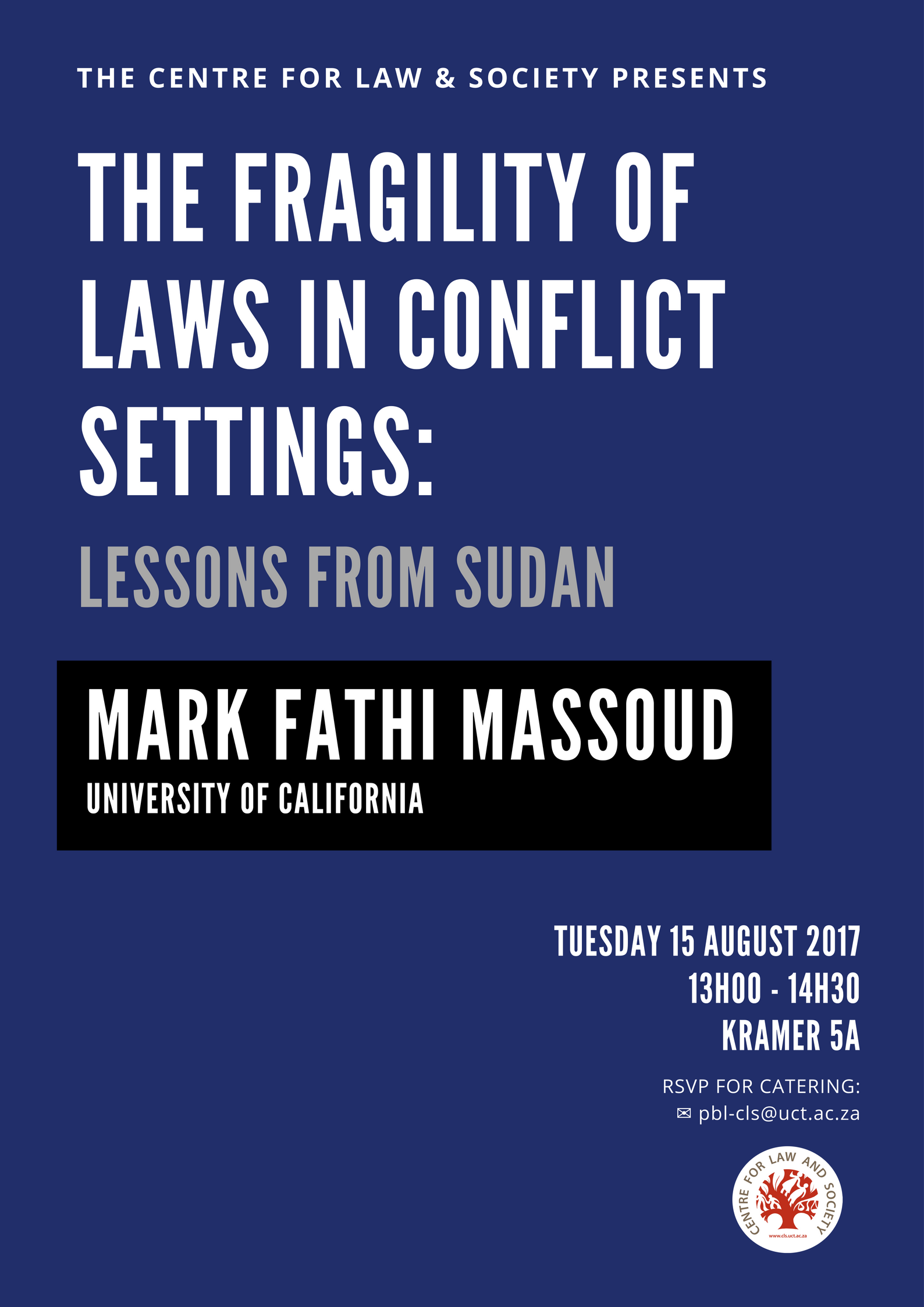
How does a legal order and the rule of law develop in a war-torn state? On Tuesday 15 August CLS hosted Dr Mark Fathi Massoud for a discussion on legal vacuums in fragile states and how postcolonial governments and aid agencies have used tools and practices to promote stability and their own visions of the rule of law amid political violence and war. Mark offered his thoughts on the ways that the law matters even in the most extreme cases of states still fighting for political stability.
Mark Fathi Massoud is Associate Professor of Politics and Legal Studies at the University of California, Santa Cruz (USA). His research focuses on law in conflict settings, and on Islamic law and society. He teaches courses in international and comparative law, and research design and methods. His book, Law’s Fragile State, received the Law and Society Association Herbert Jacob Book Prize for best book in law and society and the Honorable Mention Award for the American Political Science Association Pritchett Prize for the best book on law and courts. He spent 15 months in Sudan researching this book.
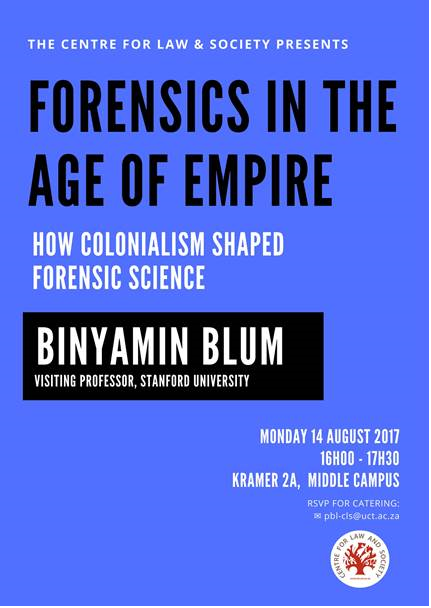
On Monday 14 August 2017 CLS welcomed Dr Binyamin Blum for an insightful discussion on the ways in which colonialism shaped forensic science.
As a legal historian of the British Empire, Binyamin Blum specializes in the relation between law and colonialism during the nineteenth and twentieth centuries. His current book project Forensic Culture in the Age of Empire explores the colonial origins of forensic science. Building on the observation that many of the forensic technologies of the nineteenth century were invented by non-scientists in the colonies, the book explores the cultural underpinnings of forensic epistemology as a new approach towards fact-finding. Stemming from perceived notions concerning native mendacity, non-cooperation and the difficulties of cross-racial identification, forensic science rendered crime scenes legible without the mediation of native eyewitnesses, thus facilitating policing across the cultural gaps of empire.
Binyamin also writes on current issues of evidence and proof, such as the suppression of confessions and the exclusion of unlawfully obtained evidence more generally, the spousal privilege, DNA and circumstantial evidence, rape shield statutes and character evidence.
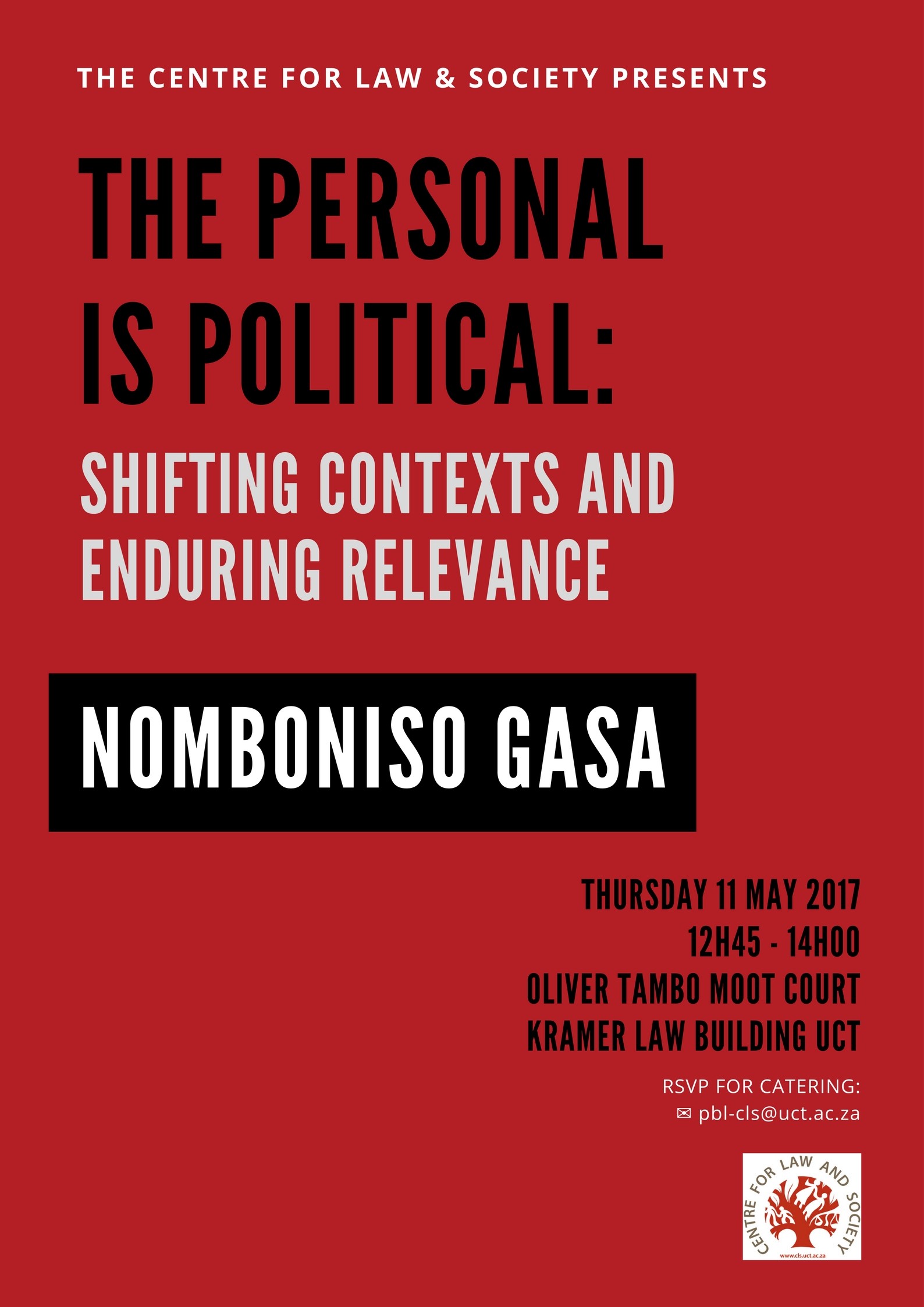
The first Thought Leader Encounter of 2017, on Thursday 11 May 2017, saw Researcher and Analyst Nomboniso Gasa engaging with the feminist principle of 'the personal is political' – discussing the principle’s relevance in the context of shifting social and political dynamics in South Africa, the continent and the world more generally, and how it allows us to connect the abstract/theoretical to the material.
Nomboniso is a lifelong political analyst and public speaker on gender, politics and culture. Her focus is on the intersection of land, living custom, the construction of identities and traditional leadership. In the 1990s, she was executive secretary responsible for policy development in the ANC's Commission on the Emancipation of Women. She was closely involved in the ANC's decisive contribution to the negotiation of a new constitution, focusing specifically on gender equality. Gasa headed the International Institute for Democracy and Electoral Assistance (I-IDEA) in Nigeria. She conceptualized and drove a massive research program with Nigerian and international scholars. This culminated in a book published by I-IDEA “Democracy in Nigeria: Continuing Dialogue(s) for Nation Building” and multi stakeholder policy dialogues, including politicians, academics, senior religious leaders and civil society. The publication is treated by many Nigerians, other scholars and analysts as seminal work on many contemporary Nigerian issues. Further, her publications include “Women in South African History” (2007, HSRC Press).
Her current research interests include the de/constructions of cultural identities, masculinities, intersections of unequal patriarchal power relations with gender and other social inequalities.

